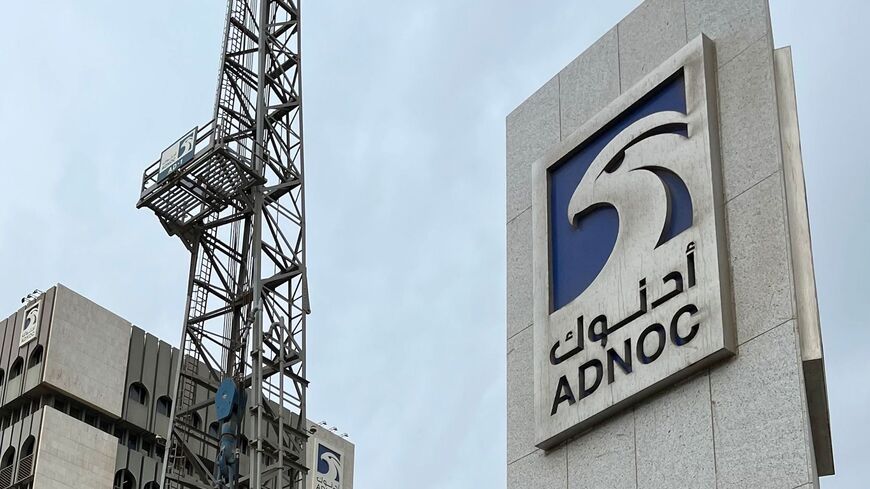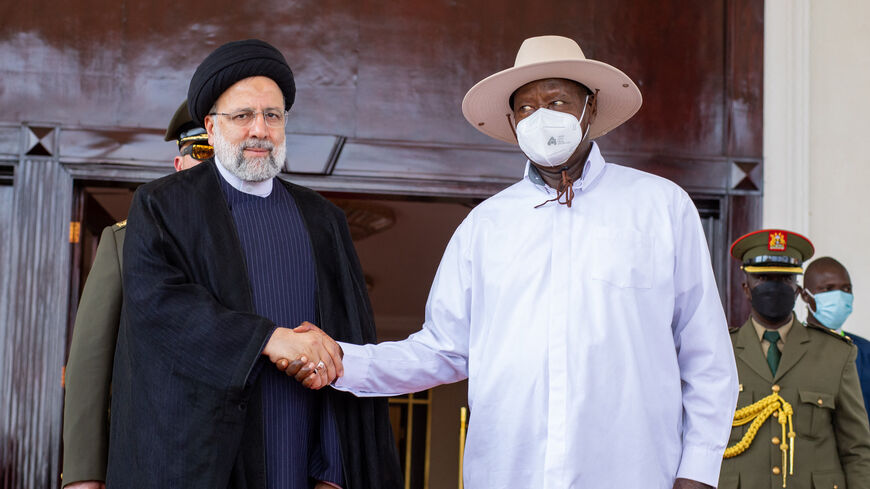Egypt’s startup ecosystem tests its resilience amid economic turbulence
Al-Monitor Pro Members
Marc Español
Journalist covering Egypt and Sudan
July 10, 2023
During an event in mid-April organized by the Egyptian Ministry of Communications and Information Technology to mark Startup Day, Minister Amr Talaat stated that despite the economic challenges facing the country and a global decline in investments in the startup sector, Egypt ranked first in the Middle East and North Africa (MENA) region in the number of VC deals closed in 2022, and that during Q1 2023 it ranked second in terms of investment size. The figures cited by Talaat reflect the resilience of Egypt’s startup scene amid severe economic woes. Yet his statements also veil a more nuanced and complex picture: that of an ecosystem that is having to refocus on its fundamentals and sustainability in order to weather the downturn, and of many startups scrambling to find alternative ways to cope with the headwinds and uncertainty.
- Egypt’s startup scene started to pick up steam in 2015 and, after three to four years, it was able to reach the level of the countries that until that moment had been considered the Big Three in Africa: South Africa, Nigeria and Kenya.
- Today, Egypt’s ecosystem is one of the most dynamic in the continent, and is among the most vibrant in the MENA region next to the UAE and Saudi Arabia.
- Egypt’s main competitive advantages lie in a domestic market of over 100 million people, a young tech-savvy population, a vast pool of talent, a strategic geographic position and a supportive infrastructure, including incubators and accelerators.
- By the end of 2022, Egypt had 677 active startups, according to Ghada Khalil, the director of the national entrepreneurship initiative Rowad 2030. In 2021, the scene employed some 13,000 people, according to the startup portal Disrupt Africa.
- The king sector for local startups is e-commerce, which accounts for around 20% of the total, according to Disrupt Africa, and includes ventures in businesses such as B2B retail; clothes and accessories; and food, drinks and groceries.
- Coming in behind is fintech, which makes up around 11% of the total. Their two main areas of focus are payments and remittance, and lending and financing.
- Other popular and growing sectors in Egypt’s startup scene are e-health and ed-tech, followed by transport, logistics and recruitment.
- Egypt’s startup ecosystem is strongly supported by the high activity of both local accelerators and incubators, such as Flat6Labs, as well as international ones, such as Plug and Play. The country’s ventures benefit the most from such programs across the continent, according to Disrupt Africa.
- The pool of investors in local startups is also diverse and dynamic, and includes local venture capital firms, like Algebra Ventures; angel networks, such as Cairo Angels; African VCs, like LoftyInc; and international VCs, such as 500 Global.
- Egypt’s startups also benefit from the government’s push to boost the scene as part of its 2030 ICT strategy, which includes investments, regulatory reforms, capacity building, training programs and the development of infrastructure.
- Egyptian authorities, led by the Central Bank of Egypt, have been particularly keen to accommodate fintech, and in recent years have created an investment fund for the sector, set up a regulatory sandbox, adopted reforms and strengthened consumer protection.
- Since 2022 Egypt has faced strong economic headwinds and its startups have had to contend with a global decline in VC activity, import restrictions, the loss of half the value of the local currency against the dollar and high inflation, which make it difficult to retain talent and affect revenues, profit margins and valuations.
- Against this backdrop, many local startups have had to tighten their belts and have announced layoffs and restructuring plans. The collapse of the e-commerce platform Capiter in September 2022 represented a major setback and a serious warning to the scene, in particular to those startups that had bet on growth at all costs.
- To cope with the crisis, many startups have also sought to broaden their pool of investors, diversify revenue stream, and seek alternative funding options such as M&A and debt financing. Some have also tried to expand their activity abroad.
- All in all, Egypt’s startup scene is showing great resilience and it was able to close 160 investment deals worth $517 million in 2022, a new all-time high, according to the government. Most transactions were closed at the beginning of the year.
- These figures made Egypt the top country in the Middle East and the second in Africa in number of deals, and the third in both regions in volume of investment, behind the UAE and Saudi Arabia, and Nigeria and Kenya, MAGNiTT reported.
- During Q1 2023 the slowdown has been felt more strongly, with Egypt recording only 25 investment deals, down 61.5% from the previous year, according to the government. The volume raised jumped to $427 million from $195 million in Q1 2022 — yet $400 million came from a February round by super-app MNT-Halan.
Scenario 1: Prolonged economic woes shake Egypt’s startup ecosystem
Egypt’s protracted economic crisis — coupled with high inflation, further weakening of the pound and a persistent shortage of hard currency — continues to not only hamper the activity of local startups, but also puts increasing pressure on their fundamentals, leads part of the ecosystem to stagnate, and some ventures with more shaky grounds fail.
In this context, more Egyptian startups also decide to relocate headquarters to the Gulf, mainly to Saudi Arabia and the UAE, in search of better access to funding, greater ability to retain talent, a friendlier business climate, and tax and administrative incentives.
Scenario 2: Startup scene expands again as global investments begin to pick up
Egypt’s startups benefit from a moderate improvement in liquidity and funding as the global economy begins to slowly rebound and Gulf countries maintain their interest in investing in the local scene. This allows more startups, particularly those at a late stage, to further diversify revenue and hard currency streams, mainly by expanding to nearby and more stable and lucrative markets while economic conditions do not improve at home.
Egypt’s economic crisis will not end anytime soon and the crunch in VC investments will continue for the foreseeable future, so in the short- to mid-term the startup ecosystem will most likely see more firms merging or being absorbed by larger players, while some may be forced to close. In terms of investment, tickets will remain low but will not affect early-stage startups substantially. Late-stage ventures will be more impacted by the crunch and will continue to look for alternative sources of funding while momentarily shelving major expansion plans and extending runways in order to focus on sustainability. Ultimately, Egypt’s startup ecosystem has strong fundamentals and is well rooted in its vast domestic market, so it will likely show the same resilience displayed in other crises in recent years.
Marc Español has been reporting on Egypt since 2017, with a focus on the economy and the human rights situation in the country. He has been a contributor to Al-Monitor since 2018 and his work has appeared in other publications such as El País and the think tanks Fundación Alternativas and the European Institute of the Mediterranean (IEMed).
We're glad you're interested in this memo.
Memos are one of several features available only to PRO Expert members. Become a member to read the full memos and get access to all exclusive PRO content.

Already a Member? Sign in
The Middle East's Best Newsletters
Join over 50,000 readers who access our journalists dedicated newsletters, covering the top political, security, business and tech issues across the region each week.
Delivered straight to your inbox.
Free
What's included:
Free newsletters available:
- The Takeaway & Week in Review
- Middle East Minute (AM)
- Daily Briefing (PM)
- Business & Tech Briefing
- Security Briefing
- Gulf Briefing
- Israel Briefing
- Palestine Briefing
- Turkey Briefing
- Iraq Briefing
Premium Membership
Join the Middle East's most notable experts for premium memos, trend reports, live video Q&A, and intimate in-person events, each detailing exclusive insights on business and geopolitical trends shaping the region.
$25.00 / month
billed annually
$31.00 / month
billed monthly
What's included:
Memos - premium analytical writing: actionable insights on markets and geopolitics.
Live Video Q&A - Hear from our top journalists and regional experts.
Special Events - Intimate in-person events with business & political VIPs.
Trend Reports - Deep dive analysis on market updates.
We also offer team plans. Please send an email to pro.support@al-monitor.com and we'll onboard your team.
Already a Member? Sign in



b5b6.jpg)



